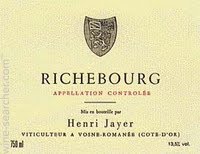Marthèlize Tredoux: On wine prices
By Marthelize Tredoux, 9 May 2015
In the alcoholic beverage family, wine is quite the chameleon. Hardly surprising, given the 1 368 vine varieties producing commercial quantities of wine, varying regions, climates and terroir and the improvements and innovations in winemaking techniques and trends. Pick nearly any aspect of wine – colour, sweetness, cultivar, style – and there are seemingly endless and varying options available.
 One of the most variable aspects must surely be price. Our beloved fermented grape juice drink can sell for anything from R30 to nearly R185 000 per bottle (average price of Henri Jayer Richebourg Grand Cru according to Wine-searcher.com’s list of the World’s Top 50 Most Expensive Wines). And that’s just going on estimates, not considering the millions of ZAR that rare and sought-after wines can fetch at auction. For the sake of relevance and more realistic context around the topic, we’ll stick to the local market, deliberately excluding the likes of Bordeaux investment wines simply because the dynamics of that market is an entirely different animal.
One of the most variable aspects must surely be price. Our beloved fermented grape juice drink can sell for anything from R30 to nearly R185 000 per bottle (average price of Henri Jayer Richebourg Grand Cru according to Wine-searcher.com’s list of the World’s Top 50 Most Expensive Wines). And that’s just going on estimates, not considering the millions of ZAR that rare and sought-after wines can fetch at auction. For the sake of relevance and more realistic context around the topic, we’ll stick to the local market, deliberately excluding the likes of Bordeaux investment wines simply because the dynamics of that market is an entirely different animal.
The incredible variation in price is something that consumers often struggle with. It seems baffling to most that what seems to be an everyday product can be sold at cheap-as-chips price points, eye-wateringly expensive ones and the entire spectrum in between.
To begin deciphering the question of the cost of wine, we’ll start with the basics. A couple of obvious and straightforward factors in wine production are immediately at play. Land prices, type of labour (manual or mechanical picking and other practices), type of farming (using organic or biodynamic methods) and yield (which can be highly variable between vintages) all contribute to the likely price of a wine before the grapes have even been crushed.
Once the winemaking starts, each choice the winemaker makes further shapes the cost of the product. Free-run or pressed juice? Do they ferment in metal tanks, concrete eggs, inside barrels or something more exotic like clay amphora? And if the wine needs to be aged, the matter of oak can go a long way to running up the cost. New French oak barrels are expensive. Even the process of ageing wines adds additional labour costs – barrels need to be topped up, racked and stored for the duration of the ageing period. Then you move on to bottling, packaging and distribution to get the bottles on the shelf – and each process has its own profits and margins to worry about. And when the wine is in the bottle, advertising, PR and marketing come into play. Branding is often a huge factor to consider when it comes to the supply and demand model. Thereafter ratings, scores and awards often add to the appeal – and, in turn, the price.
Breaking down the price tag of a wine is one thing –as the variable cost of wines becomes more comprehensible, it helps to dispel the oft-raised speculation that pricey wines are only good for fleecing buyers (if you have ever worked in a tasting room or outlet where wines over R500 are sold, you’re bound to have had that particular conversation with a patron). But will elucidating the matter change anything in how we perceive, purchase and enjoy wines?
Are expensive wines are better than cheap ones? Depends on your definition of ‘better’, but not necessarily. It may be that higher quality grapes, techniques and equipment were employed to produce wines on the more costly side of the spectrum. That doesn’t mean all cheaper wines are badly made plonk. Bringing subjectivity into play again, lower to average priced wines often outperform their more lavish counterparts in blind tastings. I’ve had R500+ bottles that severely underwhelmed me and R50-R150 ones that delighted and impressed. There is no real rule of thumb or sure-fire guarantee that the more you pay, the more you’ll enjoy.
I think it’s great to understand what goes into making the wine. “The more you know, the better it gets” notion is highly applicable to wine – greater insight can lead to a greater appreciation of what you’re drinking. But after all of this, I’m still left wondering how much better a R4 000 bottle can be than a R400 one? I’ll report back when I can afford that experiment.
- Marthèlize Tredoux is the co-owner and editor at Incogvino. By day, she helps SA wineries sell their wine in the USA. She won a wine writing award once.







Comments
0 comment(s)
Please read our Comments Policy here.